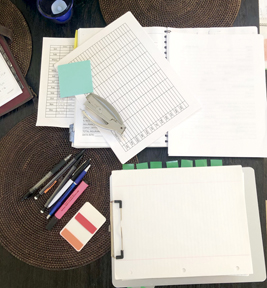Science of Procrastination
 I have a spreadsheet to finish. I cannot stand working on spreadsheets. I think I will organize the kitchen instead. Maybe I will go for a walk. Or read the Montauk Sun. Now I am occupied but still thinking about the spreadsheet that I do not want to complete. Repeat cycle.
I have a spreadsheet to finish. I cannot stand working on spreadsheets. I think I will organize the kitchen instead. Maybe I will go for a walk. Or read the Montauk Sun. Now I am occupied but still thinking about the spreadsheet that I do not want to complete. Repeat cycle.
Sound familiar? We have all been there. Not everyone is a procrastinator, but moments of procrastination are universal. Why do we do it? What is going on in the brain when we do?
It turns out we are hardwired to procrastinate, no matter how much self-inducing anxiety and frustration it may cause. Think of an internal battle between your executive functioning task master, the prefrontal cortex, and your automatic limbic system that just wants to relax and play. When the latter more primitive area overrules the former, more evolved portion of our brain, we do not execute on what needs to be done. We avoid it since we perceive it as uncomfortable. Relief is temporary, and scientifically speaking, it’s a survival mechanism to avoid something unpleasant (like managing a spreadsheet). The prefrontal cortex needs conscious, active coaxing to form new habits of achieving long term gains and not short-term avoidance. This may not sound exciting, but the thrill of focusing on one thing at a time, getting the job done, will be energizing. This is winning the war, not the battle.
When you build the mental muscle of attacking a pesky task immediately, the feeling of accomplishment will become the long-term reward, and with enough practice you will maintain this healthier habit. We know procrastinating is stressful, maddening, and expensive. Think of decisions made to mitigate procrastinating (hello, taxes, last minute travel booking). We are not lazy; we are just mismanaging our emotions. Like underlying ‘perfectionist’ tendencies, procrastinators self-sabotage and would rather lack effort than ability. If things are sloppy or late, it’s not because of being incapable.
We must outsmart our inclination to procrastinate and protect our future selves. Remember that the task is there for a reason and will ultimately benefit us in some way, that it must get done and we are the ones that must do it. Overruling your primitive instincts and noting the deeper meaning of the task beyond it being annoying, helps. The more personal and worthwhile the end-result, the more likely we accomplish it faster.
Find other ways to reward yourself for finishing something undesirable on time or even early. An instant incentive is you get to stop thinking about it! As you become more conscious and deliberate about attacking a task rather than avoiding it, the more empowered you will be. Then you can celebrate. Do the things you have to do before the things you want to do.

